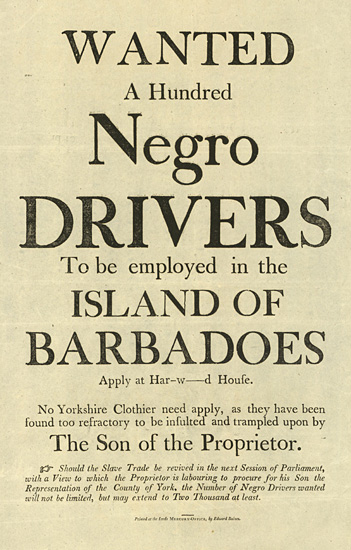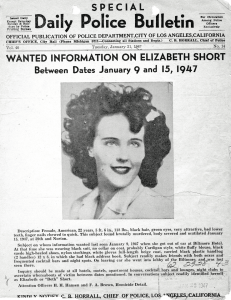In 1627, English colonizers began to settle in Barbados, an eastern Caribbean island, to expand their territory. Their primary reason for coming to Barbados was for planting sugar, so that England might avoid having to buy sugar from other European nations that produced sugar on their own Caribbean islands. The English saw how strong the demand for sugar was. Since sugar cane grew naturally on Barbados, the English saw Barbados as a lucrative opportunity.

However, the Englishmen who wanted to engage in this business had to decide who to send to Barbados to grow, harvest, and process the sugar cane into refined sugar. This was not an easy task, but these Englishmen did have a number of Irish prisoners serving various sentences. They decided on a way for these Irish prisoners to work off their sentences on Barbados sugar plantations. They sent thousands of indentured Irish prisoners to Barbados.1
As the years of growing and exporting this material continued, the English began to think of better ways for the crop to be harvested and exported faster. They needed a higher efficiency route, as well as a way that was cheaper, because the Irish indentured servants did receive some form of salary, even though they were indentured. By the 1670s, African slaves, a cheaper source of labor being used throughout the Caribbean islands, became the alternative to Irish indentured servants. As the English continued to expand their plantations, they began importing African slaves in increasing numbers.2
Between 1627 and 1807, more than 400,000 Africans, mainly originating from West Africa, had been brought to Barbados as slaves to work on sugar plantations. The English planters would request and receive more slaves whenever they believed they needed more for the plantations. The Africans were viewed as nothing more than interchangeable machine parts in the process of sugar production. The treatment experienced by the Africans was among the most inhumane in human history.3
Starting in 1640, Africans were thought of as inferior to Englishmen. Africans were not thought to have the capacity to be intelligent. In consideration of how dark skin color was defined as life of lesser value than light skin color, legal codes naturally evolved out of these attitudes.4

Although the English were continually resupplied with Africans, they felt the need to have restrictions or rules set in motion when it came to controlling the labor of African slaves. The Barbados Slave Code of 1661 created a way for planters to be able to have full capacity to control their slaves by any means they felt necessary without any legal repercussions. The Barbados Slave Code was originally enacted to serve both parties, trying to benefit the slaves and the planters; but it did not go according to plan. Slave owners were to protect their slaves from cruelty:
[N]egroes [are] an heathenish brutish and an unsertaine dangerous kinde of people…yett wee well know by the right rule of reason and order wee are not to leave them to the Arbitrary cruele and outragious wills of every evill disposed person but soo farr to protect them as wee doo many other goods and Chattles and alsoe somewhat farther as being created Men though without the Knowledge of God in the world.5
The slaves did receive one positive from the Barbados Slave Code: the ability to have a change a clothing once a year. The planters, on the other hand, were provided with many new ways to keep their slaves in line. They had the right and the authority to chastise, whip, brand, lacerate, cripple, set them on fire, or murder them with no negative consequences. The reason is during this time the English common Law, which included the right to a jury and judge, was not offered to the Africans, showing that they did not have the same rights as the planters. Africans were unable to be assured any of these statutes if their English masters harmed them in anyway.6
The Barbados Slave Codes began to spread from Barbados to Jamaica, Antigua, and also to South Carolina, where these Codes became the legal basis for slavery and the treatment of slaves in many of the thirteen colonies.7
- Hilary McD. Beckles, “A ‘riotous and Unruly Lot’: Irish Indentured Servants and Freemen in the English West Indies, 1644-1713,” The William and Mary Quarterly 47, no. 4 (1990): 503–7. ↵
- Hilary McD. Beckles, “A ‘riotous and unruly lot’: Irish Indentured Servants and Freemen in the English West Indies, 1644-1713,” The William and Mary Quarterly 47, no. 4 (1990): 505. ↵
- Kenneth Morgan, “Review of Caribbean Exchanges: Slavery and the Transformation of English Society, 1640-1700, by Susan Dwyer Amussen,” The Journal of Modern History 81, no. 3 (2009): 667. ↵
- Kenneth Morgan, “Review of Caribbean Exchanges: Slavery and the Transformation of English Society, 1640-1700, by Susan Dwyer Amussen,” The Journal of Modern History 81, no. 3 (2009): 667. ↵
- Barbados Slave Code of 1661, as quoted in Bradley J. Nicholson, “Legal Borrowing and the Origins of Slave Law in the British Colonies,” The American Journal of Legal History 38, no. 1 (1994): 38–54. Nicholson makes the point that the 1661 Code was only slightly modified in 1676, 1682, and 1688. ↵
- Bradley J. Nicholson, “Legal Borrowing and the Origins of Slave Law in the British Colonies,” The American Journal of Legal History 38, no. 1 (1994): 51. ↵
- M. Eugene Sirmans, “The Legal Status of the Slave in South Carolina, 1670-1740,” The Journal of Southern History 28, no. 4 (1962): 462–73. ↵



51 comments
Mario Sosa
Truly, it is sad how these Englishmen valued money over human beings. I find it to be shocking and sickening how slave owners used the Barbados Slave Codes to get away with mistreatment, physical abuse and murder for such a long time. Degrading humans in exchange for more money is indeed horrific. Overall, this was a very informative and well researched article; superb job!
Richard Navarro
Slaves were everywhere in the early days. These codes were harsh, it gave them absolute control over their slaves. It speaks of them as if they were just property. Like their life had no meaning. I wonder what would have been accomplished in the early days if there were no slaves. What if every man had to work for themselves? Would this world be more appreciated? Would the things that go on today actually go on?
Lianna Ybarra
I didn’t know that many of the reasons why there was so much cruelty shown to the slaves was because of these slave codes. Slavery is such a terrible topic and time. It was not right what had been done to African Americans. I thought your article was very interesting and informative. It is terrible that they could only get a change of clothes once a year and that they were taken advantage of.
Cameron Mays
This article was well written and handled an interesting, yet slightly overused topic of slavery, but it did keep me captivated until the end. The introduction leading up to talking about the slave codes was a bit to long and out of place, in other words you gave to much information not related to slavery or the codes. On the flip side, providing what the codes actually said was a good idea and your article is quite well-rounded.
Nahim Rancharan
Although the story of using African Slaves for cheaper forms of labor is not an uncommon one, it is one that serves a crucial role in our history. The manipulation of African Slaves has played a major part in the way we view different ethnicities and races even up to this day, The Barbados Slave Codes in this article provides one of the few ways in which humans have used other humans for the sake of the almighty dollar; sacrificing any idea of ethics and morality in the process. Great Job on this interesting article!
Sergio Cervantes
Well-organized article describing the cause for England to establish its own sugar cane plantations and the consequences of that decision. I always assumed African slaves were used to work the fields, but never knew that Irish prisoners were also used. It is chilling to think about thousands of families being ripped apart from each other to fuel the economy of the European empires. But this was fine since they received at least ONE change of clothing per year.
Cameron Adelman
Good job. I thought you did an excellent job giving an overview of the Barbados Slave Codes, an interesting if difficult topic to talk about without bias. I was especially impressed with your objectivity, specifically the fact that you attempted to include all sides of the issue, even that of the slavers. That’s not always easy to do, so I think its commendable that you did so.
Erik Rodriguez
Wow great article! It is unbelievable the cruel conditions African Americans went through. The one positive thing was a new change of clothes per year? That is disgraceful. It is humiliating how people use other people, slaves, for their own benefit.
Very will written and informed article!
Tina Valdez
I was not aware that the Barbados Slave was made to serve both parties. Makes you think of what else in history was planned a certain way and then resulted in nearly the complete opposite. The planters although told what they could do to keep their slaves in line seemed to have gain free reign, whereas the slaves gained nothing – and so the common idea of slavery was born. Very informative and well organized article.
Andres Palacios
Wow it is incredible the amount of cruelty and torture this slaves went through. Not only that but the gigantic amount of slaves that were brought to Barbados. Almost half a million slaves were brought in to the island.